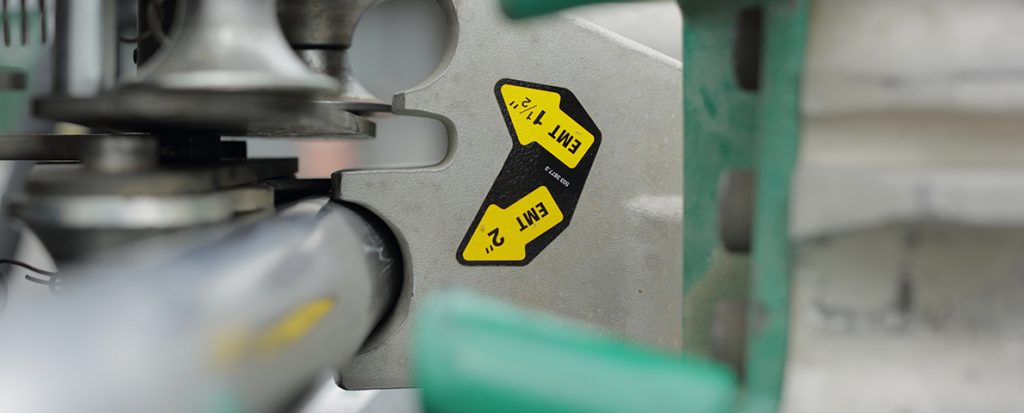Rust is a common and problematic issue in many construction materials, particularly those made from iron or steel. It leads to degradation, reduced structural integrity, and potential failures in electrical installations. However, aluminum conduit stands out as an excellent alternative due to its inherent resistance to rust. Will aluminum conduit rust? No. American Conduit has some information to show you why this is the case.
The Nature of Rust
 Rust, scientifically known as iron oxide, forms when iron or steel reacts with oxygen and moisture. This electrochemical process forms a flaky, reddish-brown substance that weakens the metal over time. Rust is particularly problematic in environments with high humidity, saltwater exposure, or industrial pollutants, which accelerate the corrosion process.
Rust, scientifically known as iron oxide, forms when iron or steel reacts with oxygen and moisture. This electrochemical process forms a flaky, reddish-brown substance that weakens the metal over time. Rust is particularly problematic in environments with high humidity, saltwater exposure, or industrial pollutants, which accelerate the corrosion process.
Aluminum’s Unique Properties
Aluminum, unlike iron and steel, doesn’t rust. This is due to the fundamental differences in the chemical properties of aluminum compared to iron. Aluminum naturally forms a protective oxide layer on its surface when exposed to air. This layer, known as aluminum oxide, adheres tightly to the metal and acts as a barrier, preventing further oxidation and protecting the underlying aluminum from corrosion.
Formation of Aluminum Oxide
When aluminum is exposed to oxygen, it undergoes a rapid oxidation process that forms aluminum oxide (Al2O3) almost instantaneously. This thin, transparent, and impermeable layer protects against environmental factors that cause rust in other metals. Unlike rust on iron, which flakes off and exposes fresh metal to further corrosion, the aluminum oxide layer remains intact and continuously protects the aluminum beneath it.
Durability and Longevity
The corrosion resistance of aluminum conduit translates into significant durability and longevity. In environments where steel or iron conduits would quickly rust and deteriorate, aluminum conduits remain intact and functional. This makes aluminum conduit an ideal choice for various applications, including coastal regions, industrial settings, and outdoor installations where exposure to moisture and corrosive elements is unavoidable.
Maintenance-Free
One of the major benefits of aluminum conduit’s resistance to rust is the reduction in maintenance requirements. Steel and iron conduits often need regular inspections, protective coatings, and treatments to prevent or mitigate rust. Aluminum conduits, on the other hand, require minimal maintenance due to their natural corrosion resistance. This results in lower long-term costs and fewer interruptions for maintenance activities.
Lightweight and Easy to Handle
In addition to its rust resistance, aluminum conduit is significantly lighter than steel. This makes it easier to handle, transport, and install. The reduced weight does not compromise its strength and durability, making aluminum conduit a practical choice for many construction and electrical projects. The ease of installation can lead to time and labor savings, further enhancing the overall efficiency of a project.
Versatility in Applications
Since aluminum conduit doesn’t rust, it’s an excellent choice for various applications. It is commonly used in residential, commercial, and industrial settings where electrical wiring needs protection from environmental factors. It is also ideal for marine and coastal applications, where saltwater exposure would quickly corrode other metals. In addition, aluminum conduit is used in underground installations, chemical plants, and other harsh environments where corrosion resistance is critical.
Will aluminum conduit rust and ruin your installation? The answer is a resounding “No.” Find out more by calling American Conduit at 1-800-334-6825 or contacting us online.

